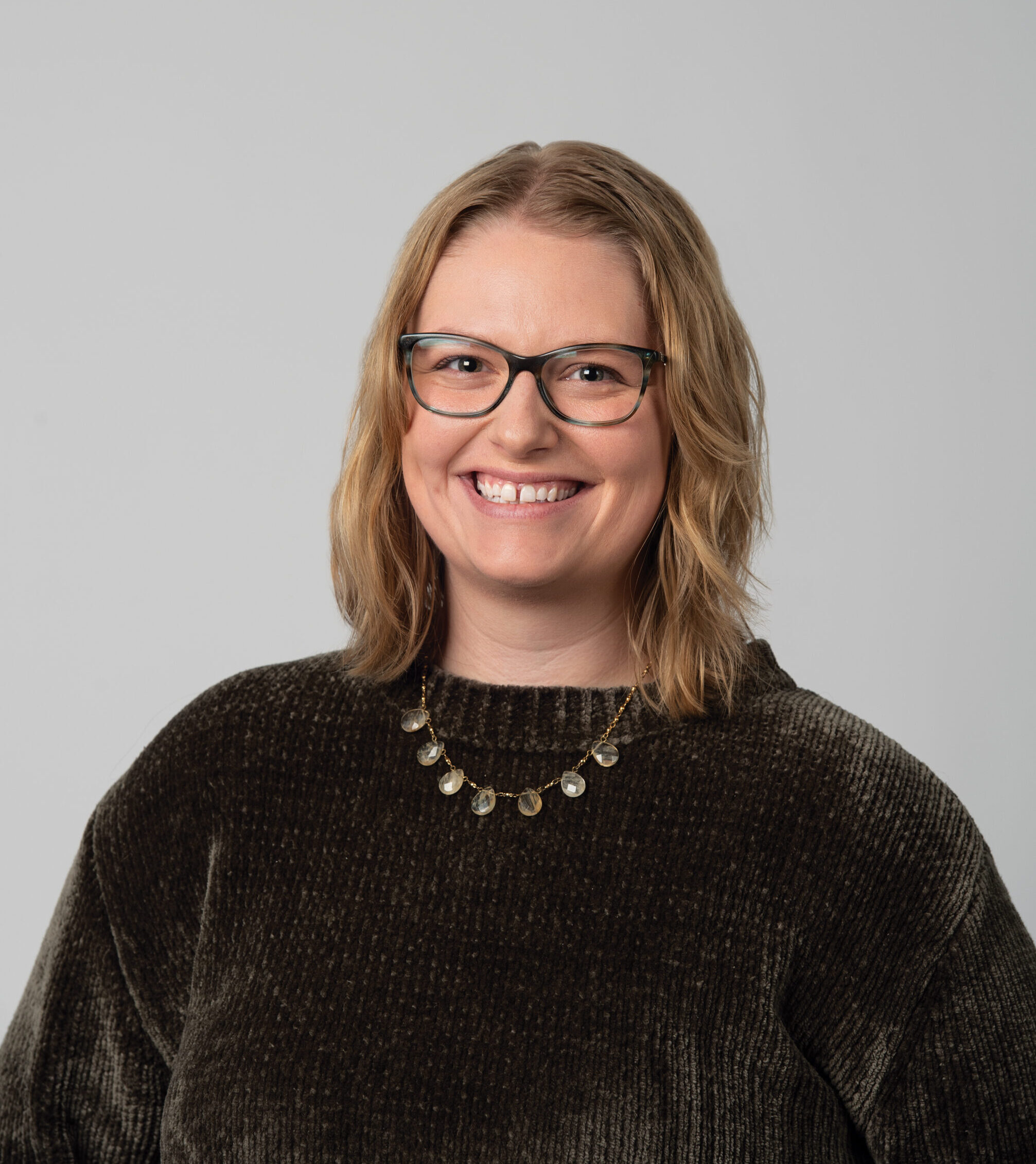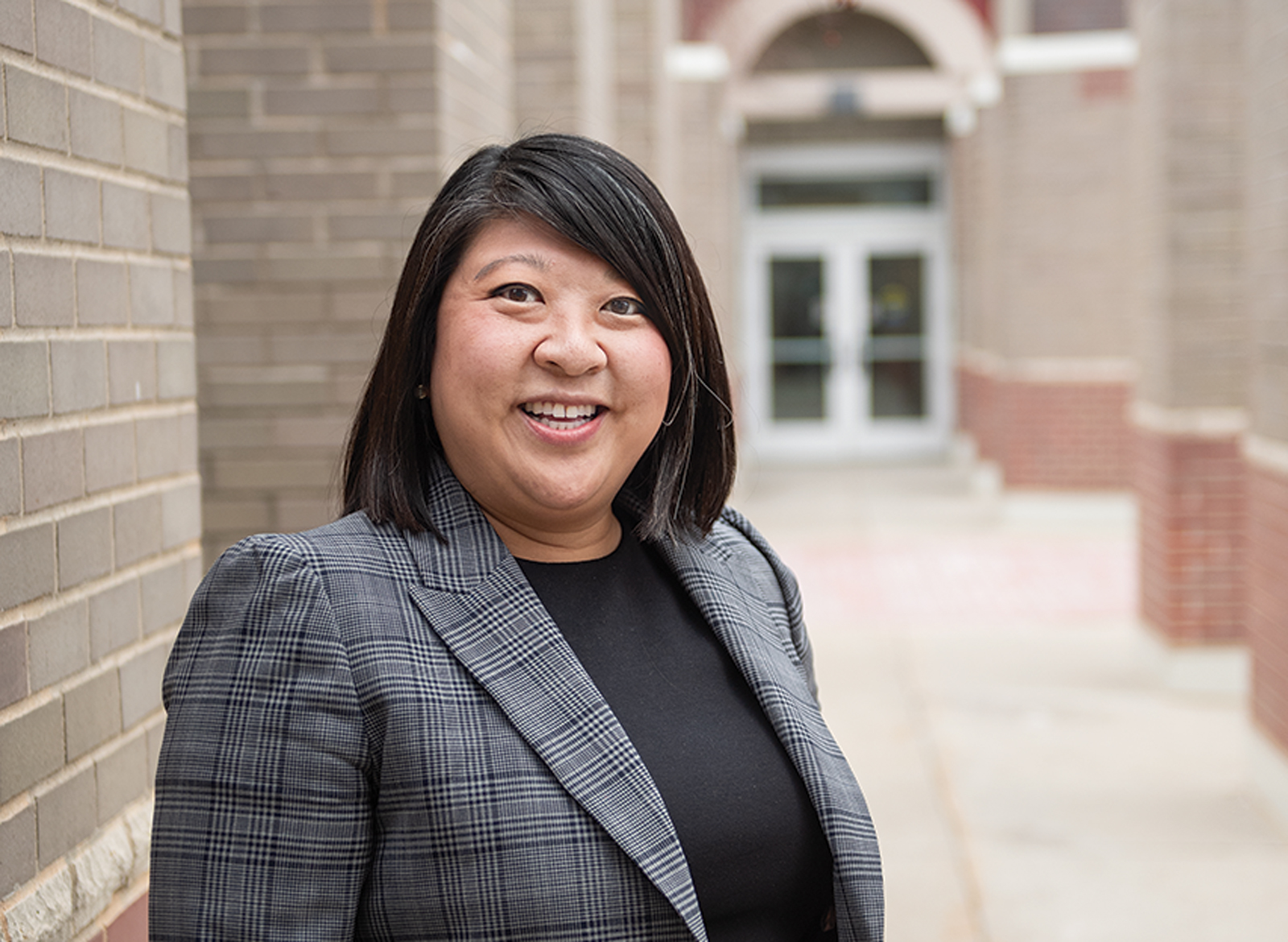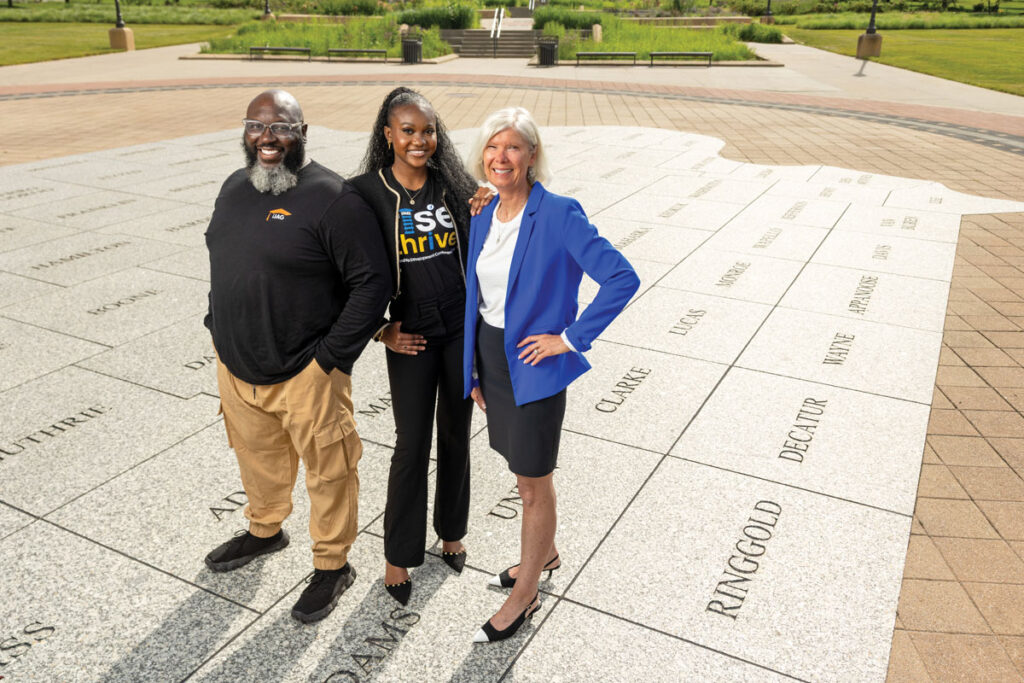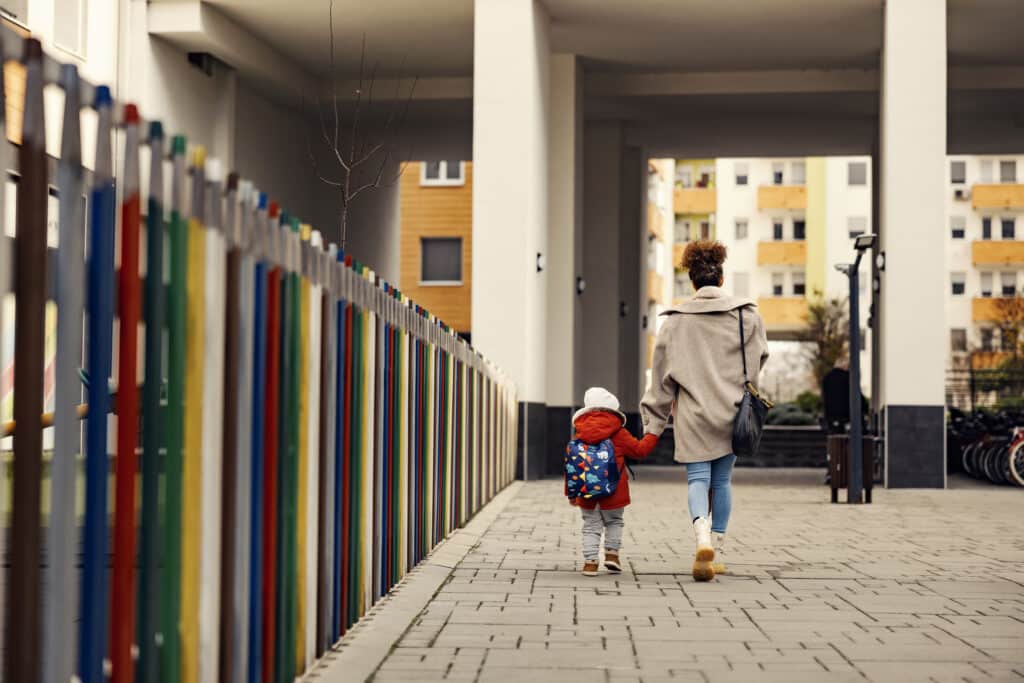A Closer Look: Naomi Sea Young Wittstruck
Director of diversity, equity and inclusion, Des Moines Area Community College

Naomi Sea Young Wittstruck was hired in January 2022 to serve as Des Moines Area Community College’s first director of diversity, equity and inclusion.
The role is within President Rob Denson’s office, overseeing DMACC’s districtwide DEI efforts and consulting with leaders who will implement plans that align with the community college’s strategic plan on DEI.
DMACC partnered with Schabel Solutions, a local consulting firm, in 2019 to develop its strategic plan for DEI. A draft was created after work with a steering committee and students, faculty and staff to identify priorities for the college. Wittstruck used her first year to get acquainted with each DMACC campus and plans to finalize the strategic plan in 2023.
After growing up in Minnesota, Wittstruck has lived and worked in Iowa since 2007 to create awareness of the importance of diversity and social justice.
She briefly worked for the Wesley Foundation in Ames providing education to Iowa State University students on immigrants rights issues and has held statewide and regional leadership roles with the Iowa Annual Conference of the United Methodist Church. She led training for clergy and lay members in communities statewide on social justice issues, including poverty and immigrant support, and helped communities through the effects of the 2008 flood.
She also served as the annual conference’s lobbyist with the Iowa General Assembly and the organizational liaison with regional, state and national DEI partners.
The Business Record recently caught up with Wittstruck.
Responses have been edited and condensed for clarity and length.
What interested you in this role at DMACC?
I’ve had a little bit of an adventurous career. Before coming to DMACC, I was at the Iowa Annual Conference of the United Methodist Church for five years. Then I worked as a community development director for a Des Moines nonprofit organization working with direct human service needs, and was trying to engage the organization and the clients with transitioning to an asset-based model for collaboration, connection and services. I did that for two years, briefly served as the executive director of that institution, then ended up going back to the annual conference in a different capacity, working with another team around different forms of leadership development and institutional areas with local churches across the state. That’s then when the pandemic hit, so I had the privilege to have some time away. I have always been very involved with higher education. I was a trustee at my former undergraduate institution, so I saw it from that side, and then I also always created internship and mentorship programs with college students at the different organizations I’ve worked at. I was interested in DMACC because of the multiple ways that they support the community and because of the unique and diverse demographic of students and communities that are represented. I thought it would be a great opportunity to continue to build on my intersectional background.
What do demographic shifts mean for employers when they are thinking about DEI and the future of
the workforce?
A lot of employers are really focusing on the understanding of DEI. I think a lot of that was catalyzed with national corporations after George Floyd’s murder in 2020. I think that’s happening in sectors for education, nonprofits, private businesses and public organizations. One of the realities is, statistically, research shows that teams that are more diverse based on areas of gender, race, neurological diversity, physical disabilities, different languages, different religious perspectives, those organizations outpace other institutions and organizations because they have teams that add to diversity of thought, innovation and tend to do much better sustainably longer in their sector of business than those that are more homogenous and are not as inclusive or focused on that as a value for their institution.
Looking at the workforce, I think the national demographic shifts that are coming based on race and multiple other forms of diversity, those shifts at the state level have already happened. When you look, for example, at the Des Moines Public School data in the last 20 years, DMPS has seen a significant shift in student demographics based on race, ethnicity, language and income levels. I think that’s going to be reflected again in what we do here at DMACC. We’re working to build a stronger connection to support those students coming out of DMPS as well as all the students who come from the other areas that we currently have student populations from. We want to ensure that we can support the success of those students and then connect that with the workforce. But there is a lot to be done. It’s one thing to understand theoretically the need for that from a higher ed institution, or from other businesses or corporations. It’s another thing to put it into practice and embed it in the culture of an institution.
What do you think it takes to embed DEI in the culture of an institution?
It takes a lot of different areas. In higher ed institutions, just being here a year, I think it takes prioritization from the top level of the institution, a commitment to that and an understanding of that before it can be successful. It takes a lot of relationship-building, education, training and experience in learning how to apply that theory into practice. A lot of people can go through DEI trainings on implicit bias or microaggressions and still not know when something’s happening right in front of them or understand the impact on those who are the recipients of that action as well. That takes time and relationship-building and cultural valuation being core values of the institution.
What are other institutional DEI advancements DMACC is working on?
I’m working in partnership with HR to look at the advancement of understanding of diverse hiring, workforce analysis, affirmative action, compliance and reporting. We’re working with them to look at recruitment, retention, screening rubrics and interview processes for teams so that diverse candidates are being treated with equal opportunity and advancement potential here. Then it’s looking at how do we meet specific goals for an increase in students of color populations, for students from other demographics that are representing multiple forms of diversity here at DMACC? And how do we not only recruit them, how do we retain them and support them as they move into different career paths or into another higher education institution to finish their work? From that side as well, ensuring that all students, not just the diverse student populations, value and understand why diversity is important to all of us, why issues of inclusion and equity and a sense of belonging in institutions are important.
For DMACC, we are hoping that the staff and faculty in the future will reflect at an equivalent or greater rate, the diversity of the diverse student population here. That would be districtwide. Right now we’re not on parity with that, and from a national level, community colleges and higher ed institutions are not on parity with that for the executive leadership and their faculty and staff demographics across the board.
Are there specific drivers that have contributed to the disparity in diversity of staff and faculty?
A lot of that is reflective of the challenges for higher ed. One of the areas we’re looking at here at DMACC, for example, is looking at a balance when there are hiring processes being done for professional or work experience, rather than primarily just focusing on educational degree level, so that there’s an equivalent value placed on both. Some of that is based on, again, inequities built into our education culture, for access to seeking higher education. Other areas I think that are challenges related to that are the issues of inclusion and belonging. National data right now, along with the great resignation, is showing that there are much higher rates of faculty and staff of color who are resigning from higher ed positions because they don’t find a sense of inclusion and belonging in the environments they’re in. The buildup of microaggressions and experiences of not feeling as if they are welcomed or a part of the culture in a given educational institution is showing a much higher rate of exit for those populations of leaders.
To be honest too in the DEI areas, there’s a really high turnover rate because a lot of DEI leaders are within diverse populations. They’re representing diverse racial, gender, LGBTQ, folks with disabilities, neurological differences, so a lot of times in terms of expectations, they’re both supporting the institution getting onboarded with understanding the framework of DEI from a personal and professional level. I think that’s important to know because that’s not really talked about a lot.
Can you explain what asset-based community development (ABCD) is?
ABCD started out of DePaul University by John Kretzmann and John McKnight, who were both working at DePaul at that point. They wrote a book in 1983 called “Building Communities From the Inside Out.” It focuses a lot on looking at how you bring together people from different sectors to create a positive community change, ensuring that everyone has a part in it. It’s looking at kind of a grassroots model of getting local residents, people impacted by issues, intersections from public, private and nonprofit institutions, and then looking at the infrastructure of that and the community and the resources economically and how you build momentum and create change positively for all involved in that.
At a glance
Education: Bachelor of Special Studies in social justice from Cornell College; master’s degree focused on public policy, theology, ethics and asset-based community development from Emory University.
Activities: Values spending time with family and friends; traveling with her spouse and dog; and enjoys volunteering with and supporting organizations impacting change locally, nationally, and globally.
Contact: newittstruck@dmacc.edu

Sarah Diehn
Sarah Diehn is editor at Business Record. She covers innovation and entrepreneurship, manufacturing, insurance, and energy.











